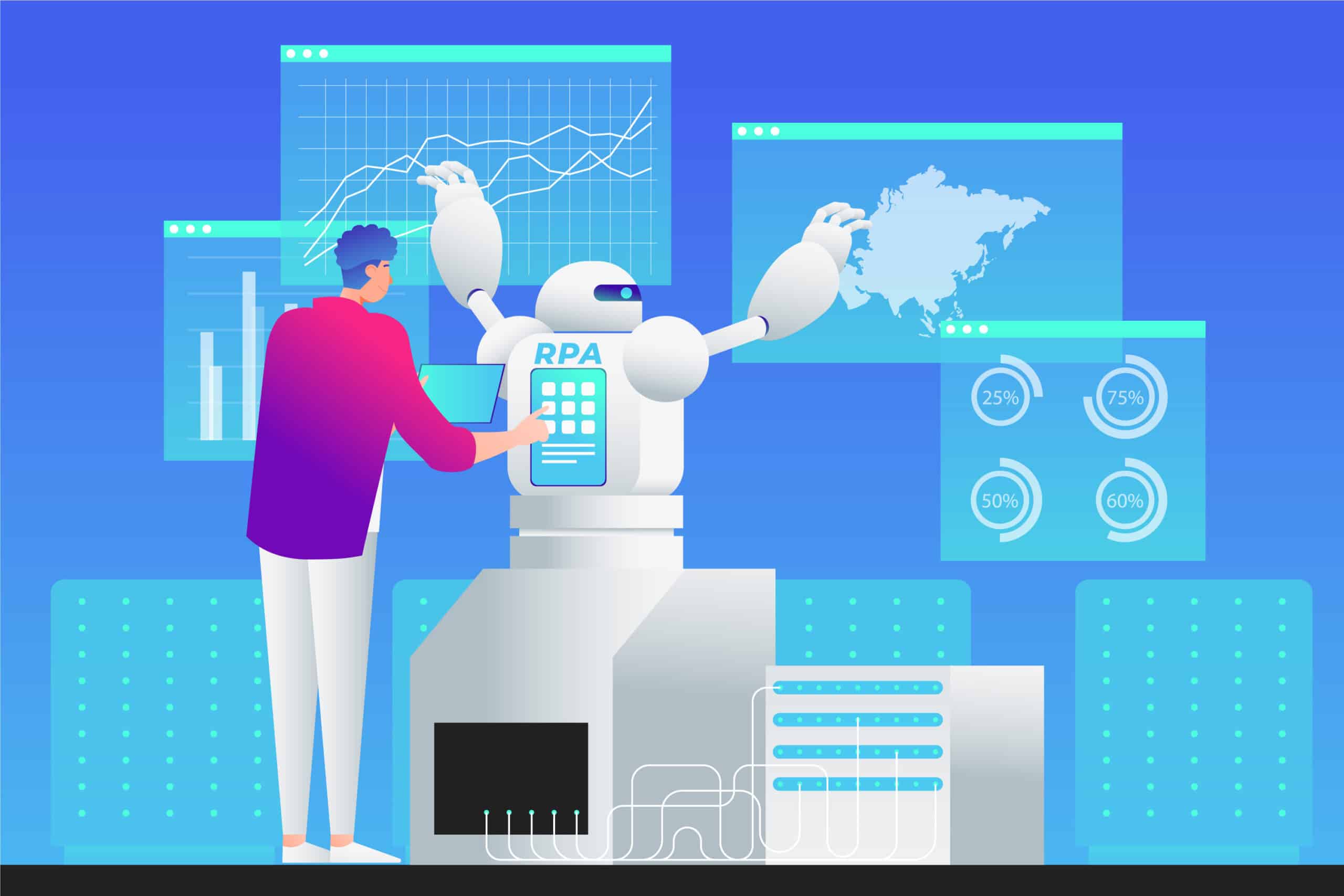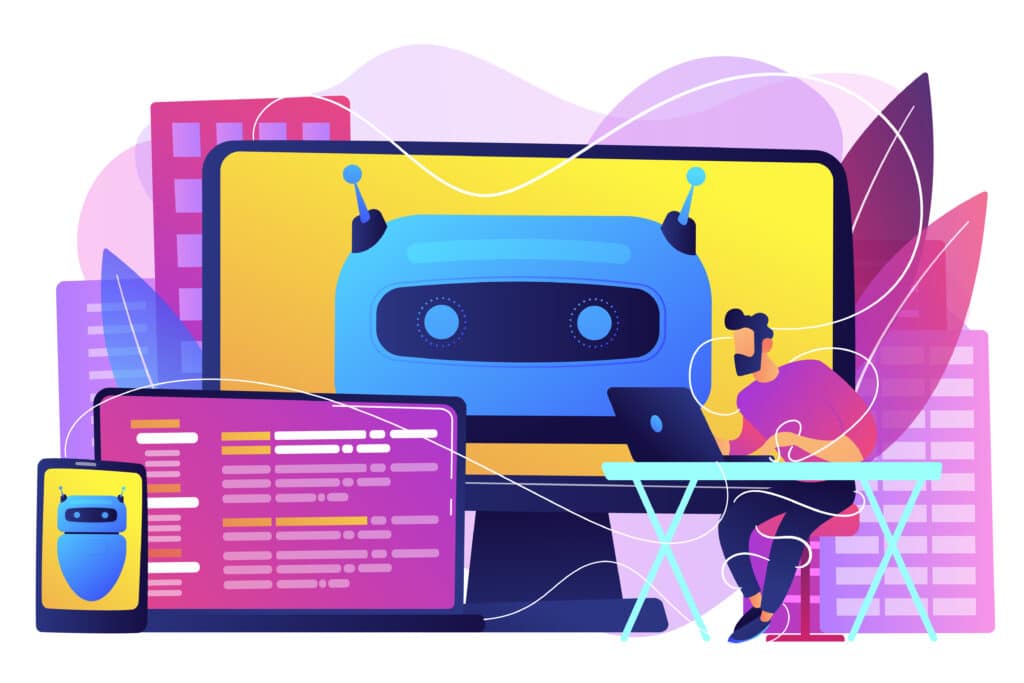The legal industry is known for its complex and time-consuming processes. From contract review to legal research, lawyers often spend hours or even days sifting through documents and analyzing information. However, with the advent of artificial intelligence (AI), the legal profession is transforming significantly. AI-powered tools are revolutionizing legal document management, automating repetitive tasks, and enhancing the overall efficiency of legal practices.
AI for legal documents enables legal professionals to optimize their workflows, enhancing accuracy and client services. By harnessing AI technology, lawyers can automate contract review, analyze extensive data, and extract pertinent information. This not only saves time but also mitigates the risk of human error, ensuring thorough and efficient document management. Leveraging AI tools in legal practice empowers professionals to navigate complex documentation swiftly and deliver superior outcomes to their clients.
This blog will discuss how AI is reshaping the legal industry, focusing on its role in managing legal documents. We’ll explore how AI improves contract review and tracking, enhances legal research accuracy, and addresses fairness concerns. Through this exploration, we’ll highlight the impact of AI for legal documents on the legal profession.
Understanding AI in the Legal Field

Artificial intelligence (AI) mimics human intelligence in machines, enabling them to think, learn, and solve problems like humans. In the legal sector, AI is revolutionizing operations by automating tasks traditionally handled by lawyers and legal professionals.
AI tools play a crucial role in improving the efficiency and accuracy of legal teams. By processing vast amounts of data, these tools can quickly identify key information and provide valuable insights to lawyers. This enables legal professionals to focus their time and energy on more strategic tasks, ultimately enhancing overall productivity.
For example, AI can streamline the process of reviewing legal documents by automatically flagging important clauses or inconsistencies, reducing the time and effort required for manual review. Additionally, AI-powered analytics can offer valuable guidance in legal research, helping lawyers access relevant case law, statutes, and regulations with greater precision.
Overall, AI for legal documents is reshaping the legal landscape, empowering professionals to work smarter and achieve better outcomes. As these technologies continue to evolve, they hold the potential to further optimize legal workflows and drive innovation within the industry.
Through leveraging AI for legal documents, professionals can anticipate continued improvements in efficiency and effectiveness, paving the way for transformative advancements in legal practice.
The Evolution of AI for Legal Documents
AI has changed a lot in law. Before, lawyers did things like checking documents and doing research by hand. But now, with better AI like generative AI and machine learning, computers can do these jobs faster and more accurately.
Generative AI means computers can make new stuff like contracts and summaries. This helps lawyers create documents quicker and with fewer mistakes. Machine learning helps computers get better at their job over time by learning from the information they see. This means they can keep up with changes in the law and give better advice.
As AI for legal documents advances, it discovers additional avenues to assist in law. It aids in tasks such as contract analysis and legal research, enhancing the speed and quality of legal work. As AI for legal documents evolves, it promises to further streamline processes and improve outcomes in the legal field.
Related Article: Can Lawyers trust Generative AI?

Time-Consuming Nature: Reading contracts takes a lot of time, especially when there are many of them. Lawyers have to spend a long time looking at each contract carefully, checking all the parts like rules and conditions. This gets harder when there are lots of contracts to look at, and it makes the review take much longer.
Potential for Human Error: When people check contracts by hand, they can make mistakes. Even experienced professionals might miss important parts, like rules or differences in contracts. These mistakes can cause big problems, like legal issues or money troubles, for the companies involved.
Inefficiency and Productivity Impacts: When people review contracts by hand, it can slow things down. Lawyers have to read through complicated legal papers one by one, which can cause delays in agreeing on contracts and getting them done. Plus, doing the same thing over and over again can make legal teams tired and less efficient, making it even harder to get things done quickly.

AI tools are revolutionizing legal document management by automating repetitive tasks and improving efficiency. One of the key areas where AI tools are making a significant impact is document review. Traditionally, lawyers had to manually review and analyze documents, which was time-consuming and prone to human error.
With AI for legal documents, document review can be automated, saving time and improving accuracy significantly. AI tools can analyze large volumes of documents, extract relevant information, and offer insights to aid lawyers in making informed decisions. This not only enhances efficiency but also enables legal professionals to concentrate on more complex and strategic work.
Automating Contract Review and Management
Contract review is a crucial task for legal professionals, but it can be time-consuming and prone to errors. AI tools have revolutionized contract review by automating the process, making it faster and more accurate.
AI-powered contract review tools can analyze contracts, highlight key terms, and identify potential issues or risks. These tools use machine learning algorithms to learn from past contracts and improve their performance over time. By automating the contract review process, legal teams can save time and ensure consistency in contract analysis.
AI for legal documents is revolutionizing contract management. It can automate tedious tasks like tracking key dates, managing contract repositories, and providing alerts for renewals and terminations. This streamlines the contract management process and reduces the risk of missing important deadlines or terms. With AI for legal documents, organizations can enhance efficiency, accuracy, and compliance in their contract management practices.
Enhancing Accuracy in Legal Research
AI for legal documents has revolutionized legal research, a fundamental aspect of the legal profession that demands a thorough analysis of case law, statutes, regulations, and other legal documents. AI-powered solutions have emerged as indispensable tools, significantly enhancing the accuracy and efficiency of legal research processes.
Leveraging AI for legal documents, legal professionals can access comprehensive databases, extract relevant information, and gain valuable insights with unprecedented speed and precision. This transformative technology empowers legal practitioners to navigate complex legal landscapes with confidence and proficiency.
AI solutions utilize advanced algorithms and natural language processing (NLP) capabilities to analyze vast amounts of legal information and extract relevant insights. These tools can quickly search through databases, identify relevant cases, and provide summaries of key information. They can also assist in legal research by highlighting relevant statutes and regulations based on specific queries.
By using AI for legal research, lawyers can save significant time and effort. These tools can quickly provide relevant information, allowing legal professionals to focus on analyzing and applying the information to their cases. The accuracy and efficiency of AI solutions in legal research make them valuable assets for legal teams.
Legal Document AI and Contract Approval Workflows
AI is reshaping contract approval workflows by introducing automation and efficiency. Traditional contract approval workflows involve manual review and approval processes, which can be time-consuming and prone to delays.
AI for legal documents transforms the contract approval process, making it significantly more streamlined and efficient. Leveraging AI tools, contracts undergo thorough analysis, relevant information extraction, and potential issue flagging, thereby minimizing the time and effort needed for manual review.
Moreover, AI for legal documents enhances workflow management systems by automating the routing and tracking of contracts. This ensures timely approvals and smooth workflow progression, bolstering organizational efficiency and compliance. With AI for legal documents at the helm, businesses experience heightened accuracy, accelerated processes, and improved contract management capabilities.
By leveraging AI in contract approval workflows, legal teams can improve efficiency, reduce turnaround times, and ensure compliance with contractual obligations.
Related Article: How To Manage Contracts Efficiently: Best Practices
Practical Guide to Implementing AI in Your Legal Practice

Selecting the Right AI Tools for Your Needs
- Identify your specific needs: Determine the tasks or processes you want to automate or improve using AI. Consider areas like contract review, legal research, or case analysis.
- Evaluate tool functionality: Assess the features and capabilities of different AI tools available in the market. Look for tools that align with your needs and provide the desired functionality.
- Consider ease of use: Choose tools that are user-friendly and intuitive, ensuring that your legal teams can easily adopt and integrate them into their workflow.
- Review customer feedback and case studies: Research customer reviews and case studies of AI tools to gain insights into their performance, reliability, and customer satisfaction.
- Seek recommendations and consult legal experts: Consult with colleagues, industry experts, and legal professionals who have experience with AI tools to get their recommendations and insights.
Integration Strategies for Seamless Transition
Integrating AI tools into your legal practice requires careful planning and implementation to ensure a seamless transition. Here are some integration strategies to consider:
- Develop a rollout plan: Create a roadmap for implementing AI tools, outlining the specific tasks, departments, or practice areas where the tools will be initially deployed.
- Provide training and support: Offer comprehensive training and support to legal teams to familiarize them with the AI tools and ensure effective utilization.
- Pilot projects: Start with small-scale pilot projects to test the effectiveness and impact of AI tools before scaling up to the entire firm.
- Collaborate with AI assistants: AI assistants can help legal professionals navigate and utilize AI tools effectively. Collaborate with AI assistants to provide guidance and support during the integration process.
- Monitor and evaluate: Continuously monitor the performance and impact of AI tools, gather feedback from legal teams, and make necessary adjustments to ensure a smooth transition and maximize the competitive advantage.
Related Article: Top Contract Management Tips For Legal Professionals
Real-world Applications of AI in Legal Work

AI for Enhanced Due Diligence and Compliance Checks
Due diligence and compliance checks are crucial in the legal industry, requiring thorough analysis of legal data and documents. AI-powered tools can enhance these processes by automating data analysis, identifying potential risks or non-compliance issues, and streamlining the review process.
AI tools for legal documents can swiftly analyze vast amounts of data, including contracts, financial records, and regulatory documents. They extract relevant information and identify patterns, saving considerable time and effort for legal professionals. This allows them to concentrate on critical decision-making and risk assessment, leveraging the assistance of AI for legal documents.
By utilizing AI for enhanced due diligence and compliance checks, legal teams can ensure thorough and accurate analysis, mitigating risks and ensuring compliance with legal and regulatory requirements.
Creating Smart Contracts with AI
Smart contracts, powered by AI for legal documents, are contracts with terms encoded into code for self-execution. AI plays a significant role in their creation and management, offering automation and efficiency.
AI tools for legal documents can analyze contracts, extract key clauses, and convert them into code, streamlining the process. Moreover, AI automates the execution of smart contracts by integrating with blockchain technology, ensuring obligations are met automatically.
This enhances efficiency, accuracy, and transparency in contract management, minimizing errors and disputes. AI for legal documents revolutionizes smart contract creation and management, optimizing efficiency and reducing risks.
Related Article: 7 Key Contract Clauses Found In Business Contracts
Frequently Asked Questions
Can AI Replace Lawyers?
AI is a valuable tool in the legal profession, offering efficiency and speed in certain tasks. However, it cannot fully replicate the expertise and nuanced judgment of human lawyers. While AI excels at tasks like document review and data analysis, it lacks the ability to understand complex legal contexts, emotions, and nuances that often play crucial roles in legal proceedings.
Lawyers bring years of education, training, and experience to the table, allowing them to navigate intricate legal matters, negotiate agreements, and advocate for clients in ways that AI cannot. Therefore, while AI enhances productivity, it ultimately complements rather than replaces the essential role of lawyers in the legal process.
What Are the Limitations of AI in Legal Document Processing?
AI encounters challenges comprehending intricate legal documents due to their complexity. Despite AI’s assistance, lawyers remain crucial in interpreting documents accurately. They must analyze the documents in context and make informed decisions. This entails understanding not only the explicit text but also the implicit meanings and legal implications.
While AI can expedite certain aspects of document review, human judgment remains indispensable in ensuring thoroughness and compliance. Therefore, legal professionals play a vital role in complementing AI capabilities by providing nuanced interpretation and context, ultimately ensuring the integrity and accuracy of legal document analysis.
How Do I Ensure the Ethical Use of AI in My Legal Practice?
In legal practice, ensuring ethical AI use requires establishing robust guidelines. These guidelines should prioritize transparency, accountability, and human oversight in AI decision-making. Regular audits and assessments are crucial for maintaining adherence to ethical standards.
In advocating for transparency, legal professionals play a pivotal role in ensuring the responsible and ethical use of AI for legal documents. Accountability mechanisms are crucial in providing assurance that AI decisions align with legal and ethical principles. Human oversight remains paramount to uphold fairness and mitigate biases in AI-driven processes related to legal documents. Through ongoing monitoring and evaluation, legal practitioners can maintain ethical standards while leveraging the advantages of AI in their practice.
How Can Small Law Firms Start Using AI?
Small law firms can start using AI by finding affordable tools tailored to their needs. They should test these tools on small projects to assess their effectiveness. Seeking advice from AI providers and legal experts helps firms choose the right tools and integrate them smoothly.
Continuous learning and collaboration are essential for successful AI adoption in legal practice and for delivering improved client services. Embracing AI for legal documents can enhance efficiency and provide a competitive edge. However, it requires careful planning and ongoing support to maximize its benefits while addressing any challenges that may arise.
Integrating AI for legal documents seamlessly into workflows and ensuring ongoing education and collaboration among legal professionals are crucial steps in harnessing its full potential. By embracing AI for legal documents, firms can stay ahead of the curve and deliver enhanced services to their clients.
Conclusion
AI for legal documents is significantly altering the landscape of legal practice by assisting lawyers in document management and decision-making processes. It plays a crucial role in tasks such as contract review and research, enhancing accuracy and efficiency. By automating these tasks, AI streamlines workflows and ensures adherence to legal standards.
However, concerns persist regarding fairness and data privacy in AI for legal documents. Despite these apprehensions, advancements in language technology and the emergence of smart contracts demonstrate AI’s potential to further revolutionize legal practices. To effectively leverage AI for legal documents, it’s essential to carefully select appropriate tools and integrate them seamlessly into existing workflows.
This facilitates smoother adoption of AI for legal documents and maximizes the benefits, including heightened diligence and the creation of intelligent contracts. Despite facing obstacles, embracing AI for legal contracts promises to significantly improve the speed and quality of legal work, marking a transformative shift in the profession’s landscape.





